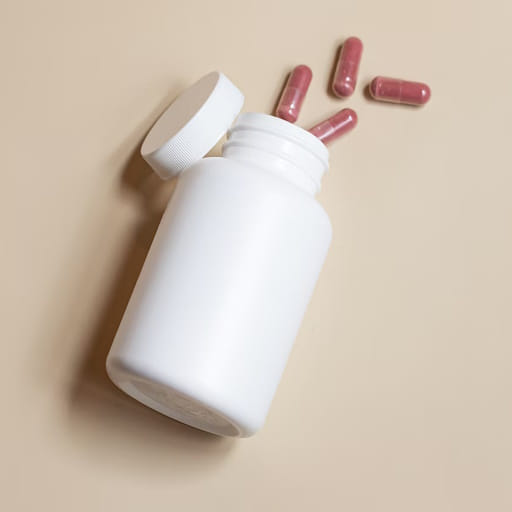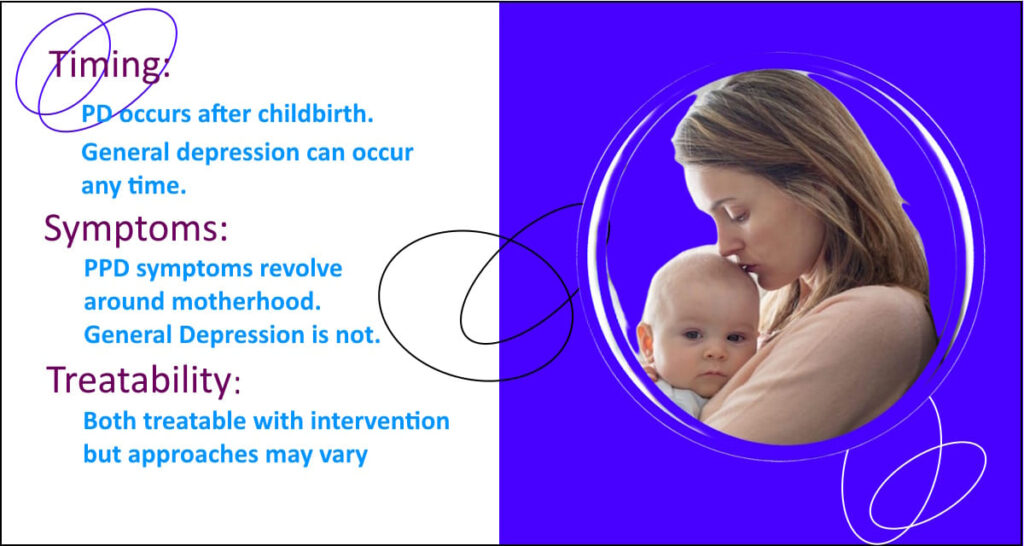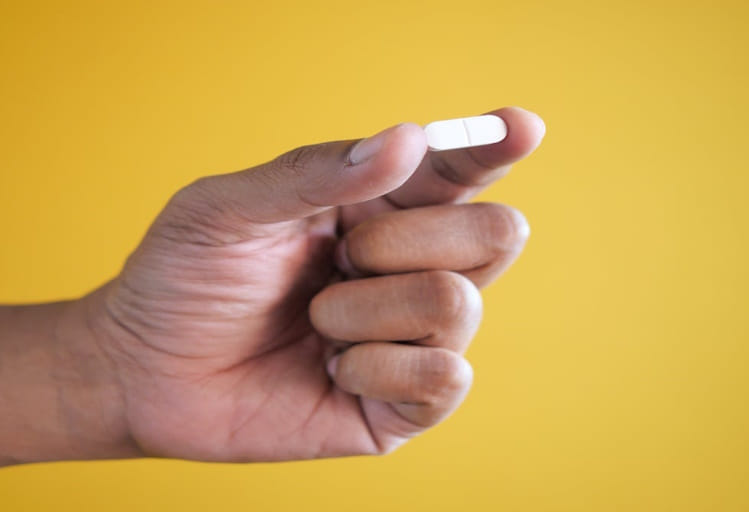Last Updated on September 1, 2023 by admin
Postpartum depression (PPD): Mental healthcare saw a major shift in approach recently for new mothers suffering from postpartum depression. The Food and Drug Administration approved the first oral medication specifically intended to treat postpartum depression, a debilitating condition affecting nearly 400,000 women in the U.S. each year.
The New Drug
The newly appmroved drug, called Zurzuvae, provides new hope for women grappling with Postpartum depression, a severe form of depression, specific to mothers post delivery. Zurzuvae is taken once daily for 14 days and clinical trials have shown it can provide significant improvements in depressive symptoms within days.

In a statement, Dr. Tiffany Farchione, director of psychiatric drugs at the FDA said that having access to an oral medication will be a beneficial option for mothers struggling with “extreme, and sometimes life-threatening, feelings”, she said.
Baby Blues and Postpartum Depression
While many people are familiar with “baby blues”–an equally debilitating condition–postpartum depression is under-recognized and poorly-understood.
Onset of Postpartum depression is typically within 4-6 weeks after delivery, but symptoms can emerge later, even up to a year postpartum. Postpartum depression differs from “baby blues,” which resolves within two weeks.
PPD can be severe, lasting and all-pervading. It could last for months, and at times, years unless the patient received treatment. Symptoms include severe sadness, anxiety, exhaustion, loss of appetite, and difficulty bonding with the baby.
PPD has resulted in many deaths, some so horrific that it has shocked the public. In 2017, a mother in Florida drowned her newborn son in the bathtub. She had been diagnosed with PPD but had not been taking her medication.
In 2018, a mother in California shook her newborn daughter to death. She had been diagnosed with Postpartum depression but had not been getting the help she needed. In 2019, a mother in New York City threw her newborn son out of a window. She had been diagnosed with PPD but too had not been taking her medication.
These instance raised a public outcry, but they also helped doctors understand They also helped doctors to have a better understanding the nature of this illness.
Doctors realized that PPD can cause mothers to have thoughts of harming their newborns, and that it was important to get treatment for PPD as soon as possible.
Postpartum Depression and general depression

Postpartum Depression differs from general depression in that it comes on suddenly after childbirth. Though there is no concensus on the causes, some experts attribute it to a range of reasons, including hormonal changes, psychosocial factors and genetic predisposition. Some findings do show that plummeting levels of progesterone directly after childbirth play a major role.
According to experts, though hormonal changes dont affect all women alike, these fluctuations can trigger significant depressive symptom for some women, who are already prone to mood disorders.
At present, doctors pre scribe general purpose antidepressants such as Zoloft or Proza, or recommend psychoanalysis to treat Postpartum Depression. However, these options have significant limitations.
Talk therapy requires regular visits and antidepressants can take weeks to provide relief. Furthermore, many women wish to avoid antidepressants while breastfeeding due to lack of safety data for the infant.
The Role of Zurzuvae

This is where Zurzuvae, the newly approved drug, provides a much-needed alternative. It is available as a pill–first time a pill is available–and contains a compound called zuranolone, which mimics the hormone allopregnanolone – a metabolite of progesterone. Unlike conventional antidepressants that target serotonin, zuranolone provides more immediate effects by modulating GABA receptors involved in mood regulation.
There is still no clarity on how zuranolone works, but some experts say zuranolone can provide rapid relief to suffers, because it works on different pathways in the brain.
In clinical trials, over half of women taking zuranolone had significant improvements in depressive symptoms within 3 days, compared to only a third of those taking placebo. The benefits continued over the entire 14-day treatment period.
The quick action of Zurzuvae could well be a a game-changer for suffers, since it could negate the negative impact of PPD, such as threating the life of the child and mother, and psychologically impacting the child. On Zurzuvae, mothers could bond with their newborn immediately.
For women who don’t find relief or relapse after treatment, zuranolone also comes in an intravenous (IV) formulation, Zulresso, which is infused over 60 hours under medical supervision.
However, the need for an extended hospital stay makes widespread use of Zulresso challenging. With an oral option now available, zuranolone will be accessible to many more women battling postpartum depression.
The Cure and the Caveat
While zuranolone provides rapid improvement, the effects can decrease once the short 14-day course is finished. In clinical trials, over 30 per cent of women relapsed within a month after stopping zuranolone.
“This likely means it will be used as an acute treatment, not a standalone,” says Dr. Friedman. “Following up with other long-term antidepressant medications or psychotherapy will be crucial.”
There are also side effects to consider, although zuranolone’s overall safety profile is generally favorable. In studies, common side effects included sleepiness, dizziness, and headache.
The Downside
Perhaps the biggest question is the cost and insurance coverage of the new drug. The price for a 14-day course is not yet announced by market-watchers hazard that it would priced competitively.
For comparison, the IV formulation Zulresso costs a whopping $34,000 for a single course due to hospitalization fees. Wider accessibility will require reasonable pricing and insurance coverage of Zurzuvae.
Nonetheless, the FDA approval is significant since a treatment specific to postpartum depression is now available, which could help PPD patients, whose illness has been ignored, and not treated properly.
“An estimated 50-80 per cent of postpartum depression cases go undiagnosed,” says Dr. Friedman. “My hope is that Zurzuvae will empower more women to seek treatment and remove the stigma.”
Moving Forward: The Future of Postpartum Depression Treatment
While Zurzuvae marks a major advance, experts say there is more progress needed to adequately address postpartum depression at a public health level.

Call to Action
If you or someone you know is struggling with postpartum depression, please seek help. There are many resources available to you, including:
Your doctor or other healthcare provider
A therapist or counselor
A support group
The National Alliance on Mental Illness (NAMI): 1-800-950-NAMI (6264)
The Postpartum Support International (PSI): 1-800-944-4773

